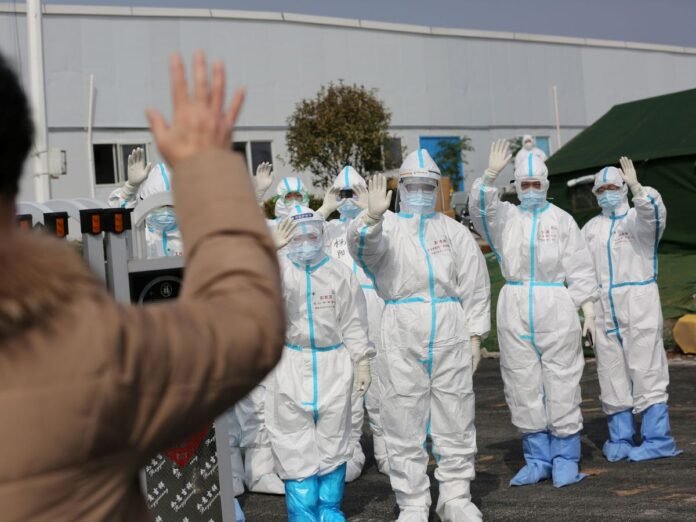Amidst a new pneumonia outbreak, China’s health ministry is taking proactive measures by calling for the establishment of more fever clinics. The move comes as a response to the rising cases of pneumonia and reflects the government’s commitment to swiftly address public health concerns.
The health ministry’s directive emphasizes the urgent need to enhance the healthcare infrastructure to effectively manage and contain the outbreak. Fever clinics, specialized in identifying and treating infectious diseases, play a crucial role in early detection and isolation of potential cases, preventing further spread within communities.
The outbreak has prompted health officials to intensify efforts in both urban and rural areas, recognizing the importance of a widespread and accessible network of fever clinics. These clinics serve as frontline facilities in identifying and isolating potential cases, contributing significantly to the overall public health strategy in controlling infectious diseases.
The pneumonia outbreak has raised concerns among health professionals and the general public. The health ministry’s call for more fever clinics is part of a comprehensive strategy to address the evolving situation. The clinics are vital not only for the diagnosis and treatment of patients but also for preventing the potential transmission of infectious diseases within healthcare settings.
As part of the response, the health ministry is working closely with local health authorities to identify key areas for establishing new fever clinics. This collaborative approach ensures that clinics are strategically located to serve communities efficiently, minimizing the risk of further transmission.
The urgency of the situation is evident in the swift actions taken by the health ministry. The establishment of more fever clinics aligns with the government’s commitment to prioritize public health and underscores the importance of a robust healthcare infrastructure in responding to emerging health threats.
Fever clinics play a pivotal role in the early identification of infectious diseases, particularly in densely populated areas. The clinics are equipped with specialized medical personnel, testing facilities, and isolation units, creating a dedicated environment for the prompt diagnosis and treatment of patients exhibiting symptoms.
The health ministry’s initiative also includes the deployment of additional medical personnel to manage the increased workload at existing clinics and the newly established ones. This influx of healthcare professionals enhances the capacity to respond effectively to the rising number of cases, ensuring that patients receive timely and appropriate care.
The call for more fever clinics reflects China’s experience in dealing with previous outbreaks and the continuous efforts to strengthen its public health infrastructure. The government’s focus on early detection and containment demonstrates a commitment to learning from past experiences and adapting strategies to address emerging health challenges.
In addition to establishing more fever clinics, the health ministry is intensifying public awareness campaigns to educate communities about preventive measures and the importance of seeking prompt medical attention. These campaigns aim to empower individuals with the knowledge to protect themselves and their communities from the spread of infectious diseases.
As the situation evolves, the health ministry remains vigilant, closely monitoring the effectiveness of the measures implemented. The proactive approach, including the establishment of more fever clinics, illustrates the government’s commitment to safeguarding public health and its determination to swiftly respond to emerging health threats.
In caddition, China’s health ministry’s call for more fever clinics in response to the pneumonia outbreak highlights the government’s proactive approach to public health. The establishment of additional clinics underscores the importance of early detection, isolation, and treatment in effectively managing infectious diseases. The collaborative efforts between the health ministry and local authorities reflect a commitment to ensuring the resilience of the healthcare infrastructure in the face of emerging health challenges.



